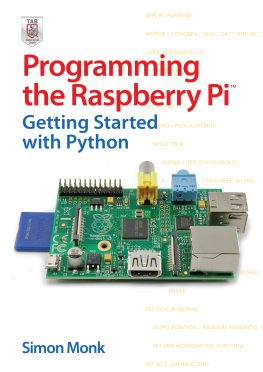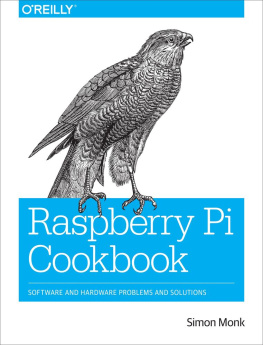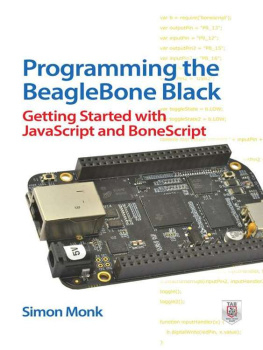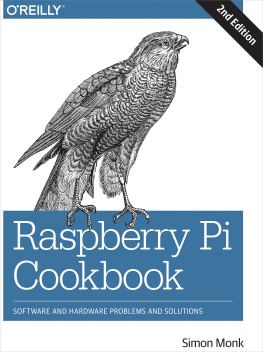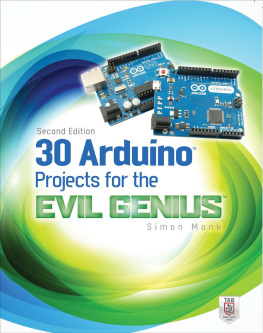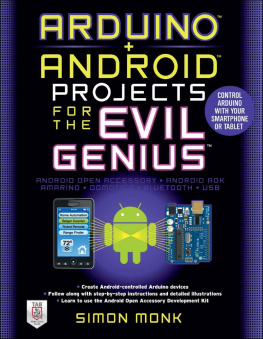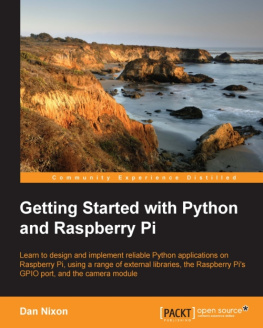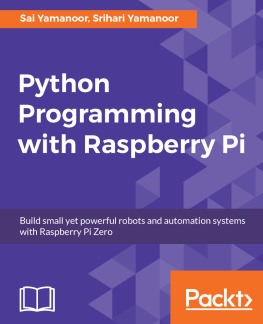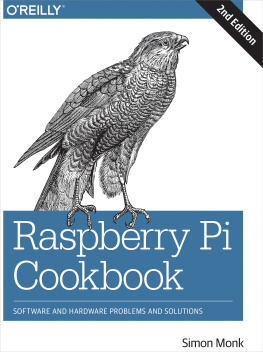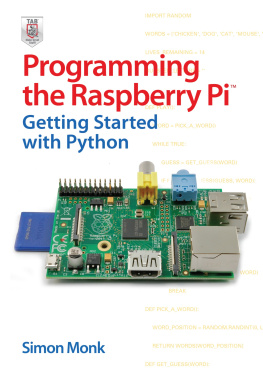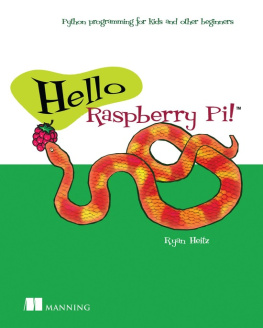Simon Monk - Programming the Raspberry Pi: Getting Started with Python
Here you can read online Simon Monk - Programming the Raspberry Pi: Getting Started with Python full text of the book (entire story) in english for free. Download pdf and epub, get meaning, cover and reviews about this ebook. year: 2012, publisher: McGraw-Hill/TAB Electronics, genre: Computer. Description of the work, (preface) as well as reviews are available. Best literature library LitArk.com created for fans of good reading and offers a wide selection of genres:
Romance novel
Science fiction
Adventure
Detective
Science
History
Home and family
Prose
Art
Politics
Computer
Non-fiction
Religion
Business
Children
Humor
Choose a favorite category and find really read worthwhile books. Enjoy immersion in the world of imagination, feel the emotions of the characters or learn something new for yourself, make an fascinating discovery.
- Book:Programming the Raspberry Pi: Getting Started with Python
- Author:
- Publisher:McGraw-Hill/TAB Electronics
- Genre:
- Year:2012
- Rating:3 / 5
- Favourites:Add to favourites
- Your mark:
Programming the Raspberry Pi: Getting Started with Python: summary, description and annotation
We offer to read an annotation, description, summary or preface (depends on what the author of the book "Programming the Raspberry Pi: Getting Started with Python" wrote himself). If you haven't found the necessary information about the book — write in the comments, we will try to find it.
Boot up and configure your Raspberry Pi
Navigate files, folders, and menus
Create Python programs using the IDLE editor
Work with strings, lists, and functions
Use and write your own libraries, modules, and classes
Add Web features to your programs
Develop interactive games with Pygame
Interface with devices through the GPIO port
Build a Raspberry Pi Robot and LED Clock
Build professional-quality GUIs using Tkinter
Simon Monk: author's other books
Who wrote Programming the Raspberry Pi: Getting Started with Python? Find out the surname, the name of the author of the book and a list of all author's works by series.

